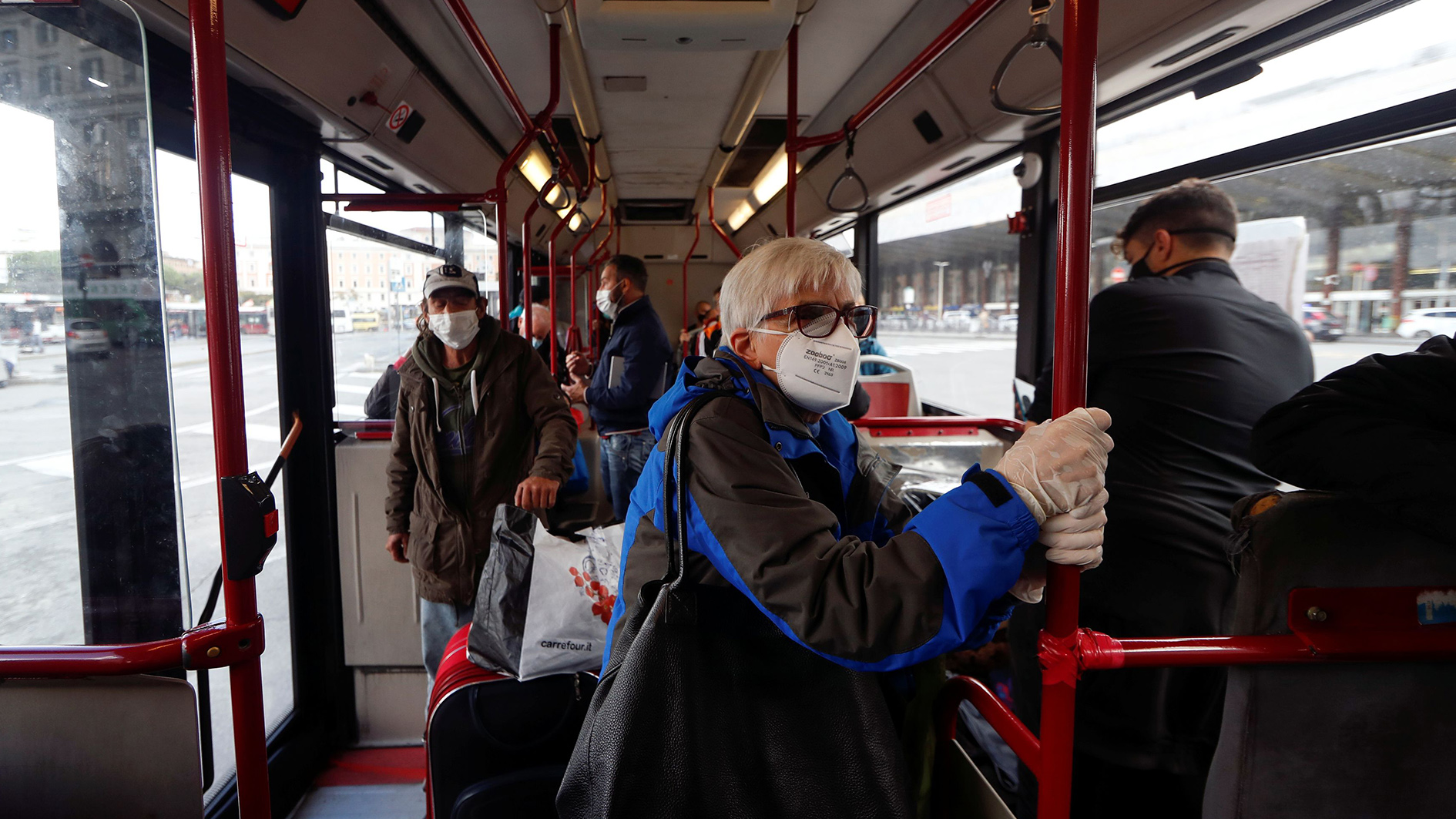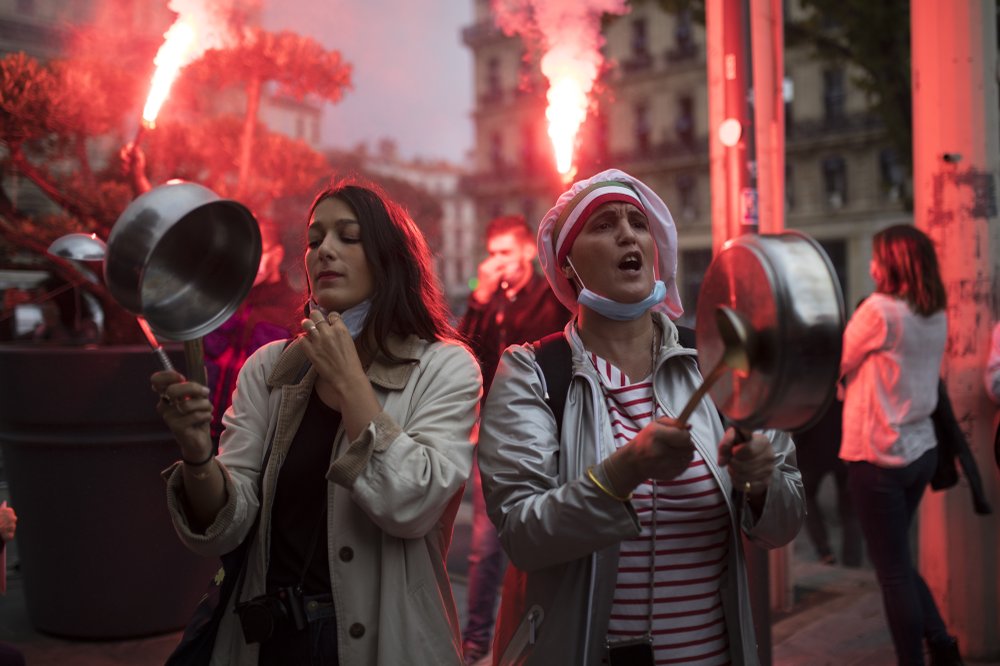Editor's note: This is the 104th article in the COVID-19 Global Roundup series. Here is the previous one.
Nearly 4.8 million people across Europe are infected with the coronavirus and 240,306 people have died from the disease, according to the latest figures from the European Center for Disease Prevention and Control.
The three countries reporting most deaths are United Kingdom (43,579), Italy (36,474), and Spain (33,775).
In order to rein the latest surge, Belgium imposed a nationwide overnight curfew on Monday as Switzerland made wearing face masks compulsory in indoor public spaces. Italian Prime Minister Giuseppe Conte gave mayors the power to shut public squares from 9 p.m. to halt gatherings on Sunday. European governments have been presenting latest desperate measures to fight a powerful second coronavirus wave one after another.
01:29

Cafes and restaurants across Belgium were shuttered for four weeks as the country tackled its own infection spike, part of a continent-wide surge that has seen a 44 percent increase in cases across Europe in the past week.
But the move has prompted a backlash from businesses despite authorities warning the country of 11.5 million people was in the middle of an exponential increase in cases.
"We don't feel considered, and it hurts my heart," said Angelo Bussi, a restaurant manager in Brussels. "Everyone is in pain. It's horrible."
Switzerland was among the few countries largely spared since the coronavirus emerged late last year and swept the world, infecting nearly 40 million people so far.
But infections have doubled in the wealthy Alpine nation in the last seven days, prompting new restrictions that also include a ban on public gatherings of more than 15 people.
"The sharp increase in the number of contaminations in recent days is worrying. Indeed, it concerns all age groups," a government statement said.
France on Monday announced the expansion of its aid measures to help small businesses hit by the novel coronavirus pandemic with a 20-billion-euro (about $23.5 billion) scheme of quasi-equity loans partially backed by the state.
The program, which would involve funding from institutional investors, such as insurers, comes on top of a 300-billion-euro package of state-backed loans made available earlier this year as the pandemic spiraled, and many firms had to halt operations or tap emergency cash.
The country imposed its overnight curfews in nine cities, including Paris and Marseille, over the weekend. The curfew has affected 20 million people, and companies and businesses are also likely to take a hit.
The new scheme, which would be up and running in the first quarter of 2021, aims to give small, unlisted companies financing options that would not entail taking on more pure debt, which could risk tripping them up as a recession bites.
Meanwhile, Britain's government scientific adviser said the country needs to impose three weeks of national lockdown restrictions.
"The current tiered restrictions will not bring the transmission rates down sufficiently or prevent the continued spread of the virus," government scientific adviser Jeremy Farrar said.
"A three-week period of nationally increased restrictions, with the right levels of financial support, will allow us to reset before winter, stop transmission spiraling, protect and prepare health services, give time to get the test-trace-isolate systems fully functional, and save lives," he said.
Wales on Monday said it would impose a two-week sharp "firebreak" lockdown from Friday in which everybody apart from essential workers would have to stay at home.
"It will have to be sharp and deep in order to have the impact we need," Welsh First Minister Mark Drakeford told reporters. "Everyone in Wales will be required to stay at home."
All non-essential businesses will have to close.

File photo: Restaurant owners clang spoons and casseroles at a demonstration against restaurant and bar closures in Marseille, southern France, October 2, 2020. /AP
File photo: Restaurant owners clang spoons and casseroles at a demonstration against restaurant and bar closures in Marseille, southern France, October 2, 2020. /AP
As daily cases in Italy hit a new record of 11,705 on Sunday, Conte said the situation had become critical but his government has been determined to avoid a repeat of the lockdown imposed at the start of the crisis in March.
"The situation is critical. The government is there but everyone must do their part," he told a news conference.
As well as ordering betting shops to close from 9 p.m. and halting amateur sporting competitions and local fairs, he said the government would consider closing gyms and swimming pools after further checks on security protocols this week.
Stricter measures have been already imposed in some of the hardest-hit regions, including Campania around Naples, which has closed schools for two weeks.
Authorities had managed to get contagion largely under control by the summer thanks to a rigid two-month nationwide lockdown, but as a second wave has emerged they have ordered new measures, including mandatory mask wearing in public and restrictions on public gatherings and restaurants.
COVID-related deaths on Sunday increased to 69, up from 47 the day before, the ministry said - far fewer than at the height of the pandemic in Italy in March and April, when daily fatalities peaked at more than 900.
The government will increase smart working in the public administration and is asking high schools to adopt staggered timetables to avoid congestion on public transport.
As part of a new 40 billion-euro ($47 billion) stimulus package the government approved in its 2021 budget, Rome will set up a four billion-euro fund to compensate companies which have been worst hit by coronavirus restrictions.
(With input from agencies)